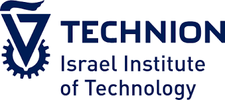
VOLABIOS utilizes advanced technologies to transform early schizophrenia diagnosis while striving to uncover the molecular mechanics of the disease. It integrates Multi-Omics approaches—genomics, proteomics, metabolomics, and transcriptomics—to provide a comprehensive understanding of the molecular changes driving schizophrenia. Mobile spectrometry (volatolomics) analyzes volatile organic compounds emitted by the body, offering a non-invasive diagnostic method. Artificial intelligence further enhances this framework by analyzing complex datasets to uncover patterns, correlations, and underlying mechanisms. Together, these technologies enable precise and rapid identification of chemical and biochemical signals serving as biomarkers for schizophrenia, improving diagnostic accuracy, reducing timelines, and paving the way for earlier interventions, deeper disease understanding, and better patient outcomes.


















